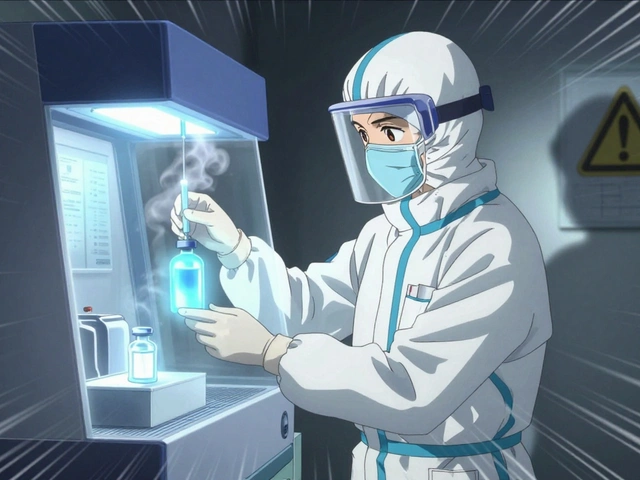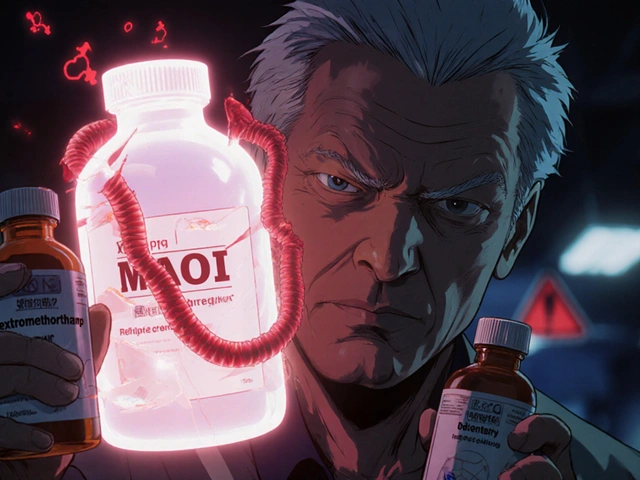Synthroid alternatives: what to try when levothyroxine isn’t helping
Feeling tired, brain-fogged, or cold despite taking Synthroid (levothyroxine) and seeing “normal” labs? You’re not alone. Some people feel under-treated even when TSH looks fine. Good news: there are practical alternatives and small changes that often help. This guide covers real options, how they differ, and what to expect when switching.
Quick checklist before switching
Before changing drugs, run through a few simple checks: are you taking levothyroxine on an empty stomach 30–60 minutes before breakfast? Do you take calcium, iron, antacids, or certain supplements within four hours of your pill? Do you have gut issues or recent changes in weight, pregnancy, or new meds (like proton pump inhibitors or certain seizure drugs)? These common factors affect absorption and often fix the problem without a new prescription.
Also confirm labs include TSH and free T4. If symptoms persist, ask your doctor about free T3 and thyroid antibodies. Don’t stop or change dose on your own—small errors can cause heart symptoms or bone loss.
Real alternatives and what to expect
Here are the alternatives doctors commonly consider, with quick pros and cons.
Different brand or formulation. Switching from a generic levothyroxine to a brand name or a liquid/softgel form can improve absorption for some people. This is low-risk and worth trying first.
Combination T4 + T3 therapy. Adding liothyronine (T3) to levothyroxine helps some patients who still feel unwell. T3 acts faster and may improve energy and mood. It requires careful dosing and closer lab checks because T3 can spike heart rate and cause anxiety.
T3-only therapy. Rarely used. Some people try liothyronine alone, but evidence is limited and doctors use it cautiously because of heart risks.
Desiccated thyroid extract (DTE, e.g., Armour). DTE provides both T4 and T3 from animal thyroid. Some patients prefer it and report symptom relief. Downsides: hormone ratios vary batch-to-batch and dosing is less predictable than synthetic drugs.
Compounded thyroid meds. Custom-mixed doses can help if standard pills don’t match your needs. Use a reputable compounding pharmacy and expect frequent lab checks.
Follow-up plans matter. After any dose or medication change, expect labs in 6–8 weeks and dose tweaks. Watch for palpitations, chest pain, or sudden anxiety—report these immediately.
Beyond meds, check for other causes of fatigue: anemia, vitamin D deficiency, sleep apnea, or depression. Supplements like selenium or correcting iodine deficiency may help in select cases but avoid high-dose iodine unless your doctor recommends it.
Final tip: bring notes to your visit—symptoms, timing, other meds, and any over-the-counter supplements. Ask your clinician about pros and cons for each option and whether a trial of combination therapy or a different formulation makes sense for you.
Want a short checklist you can print and bring to your appointment? Ask your pharmacist or doctor for a medication review and lab checklist before making changes.

Can Diet Replace Thyroid Medication? Truth, Nutrition & Hormone Therapy 2025
Wondering if changing your diet can really let you toss your thyroid meds? This article digs into what the latest science and endocrine experts say, separating nutrition fiction from facts. You’ll get real tips for supporting your thyroid with food—but also learn why most people living with hypothyroidism still need hormone replacement therapy. There’s talk about specific nutrients, food myths, and when trying an alternative to traditional meds might make sense. This long-read offers practical advice and new findings to help you make better choices for your thyroid health.
Detail



